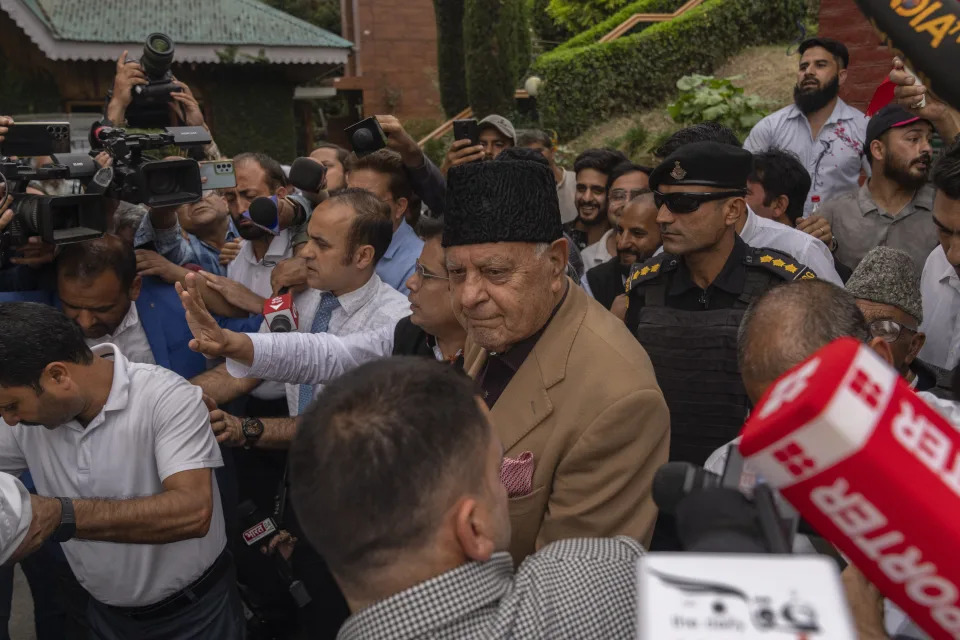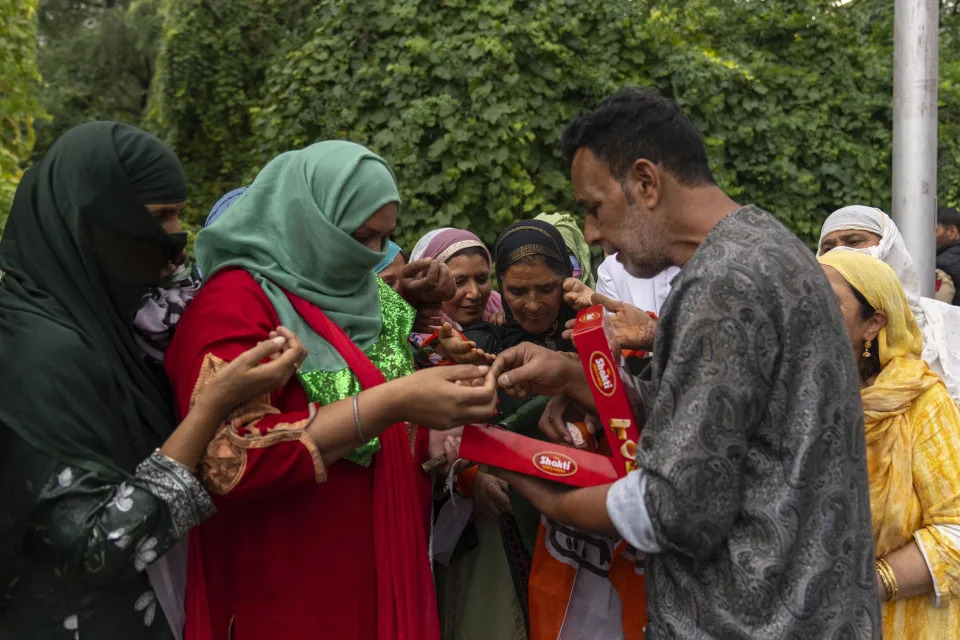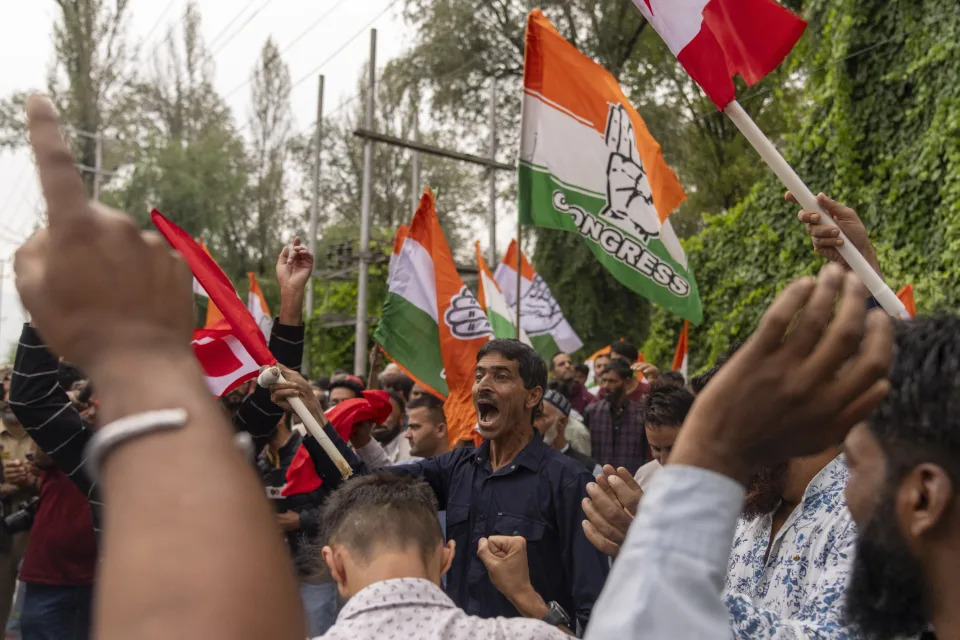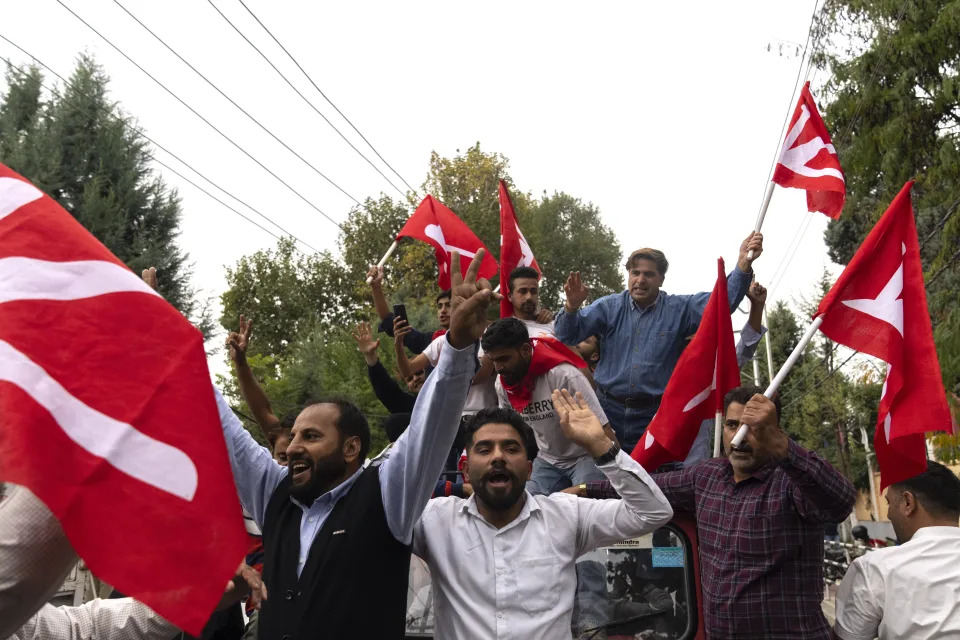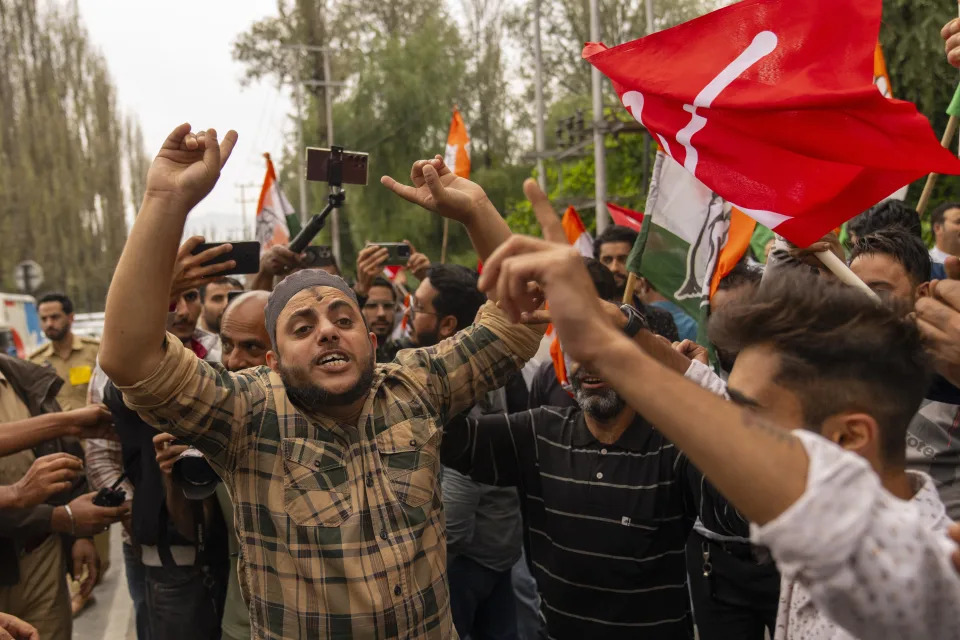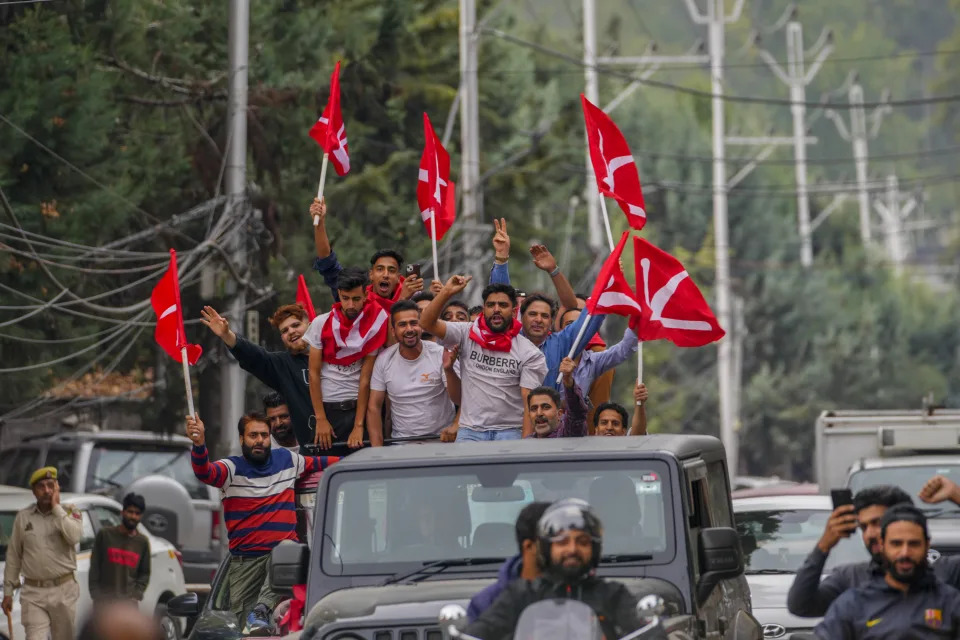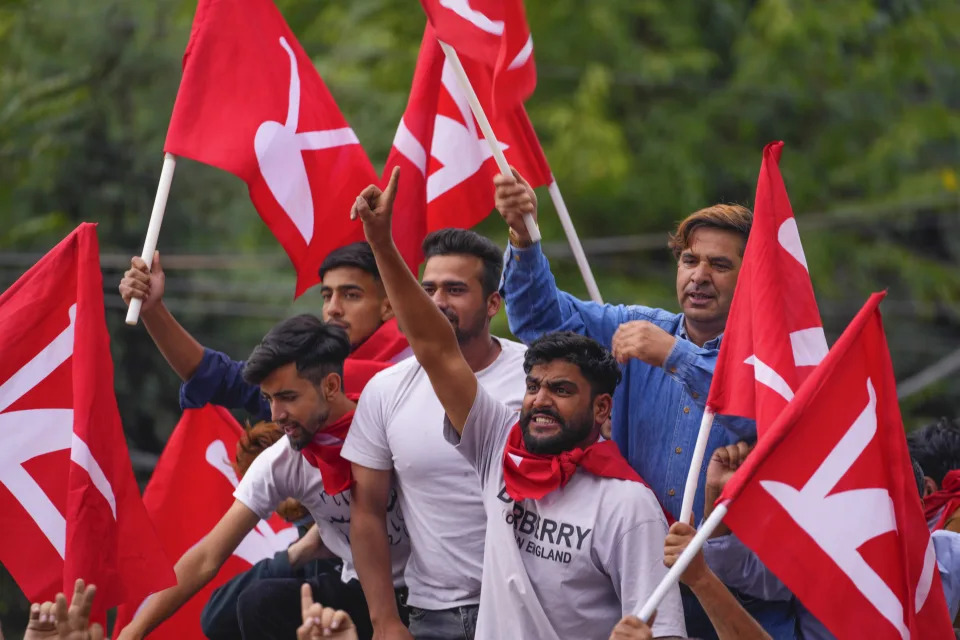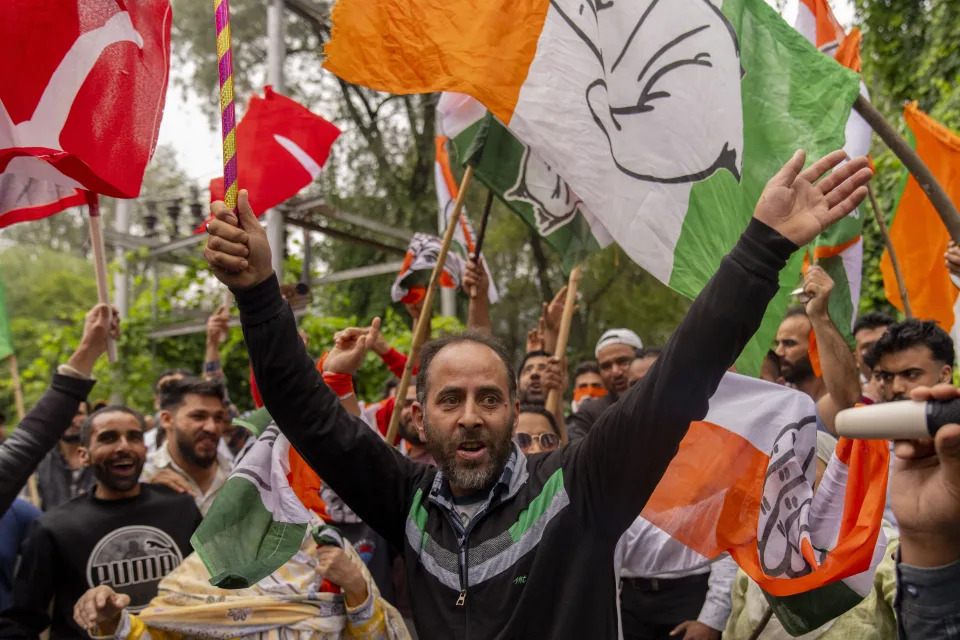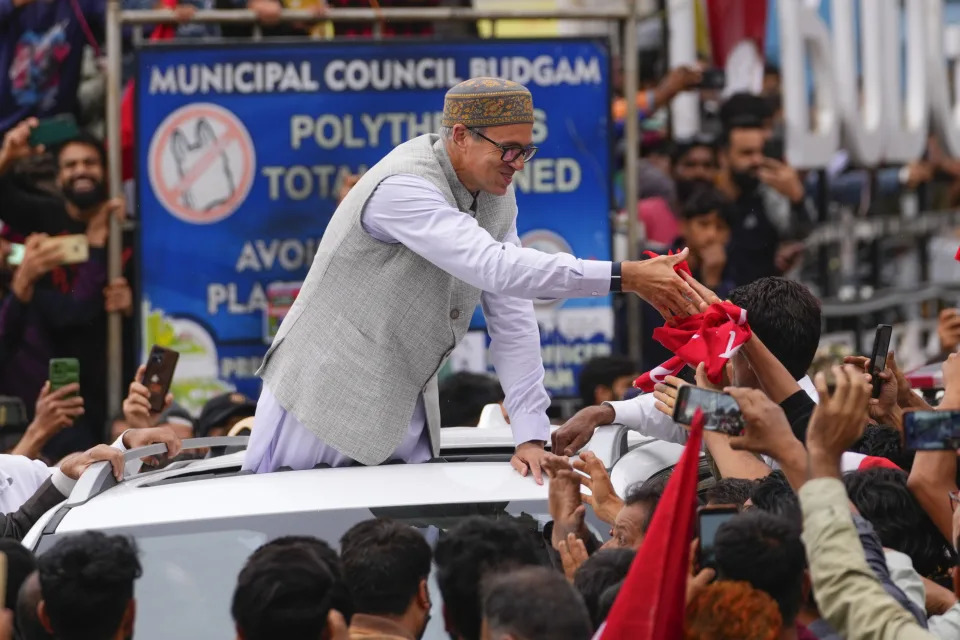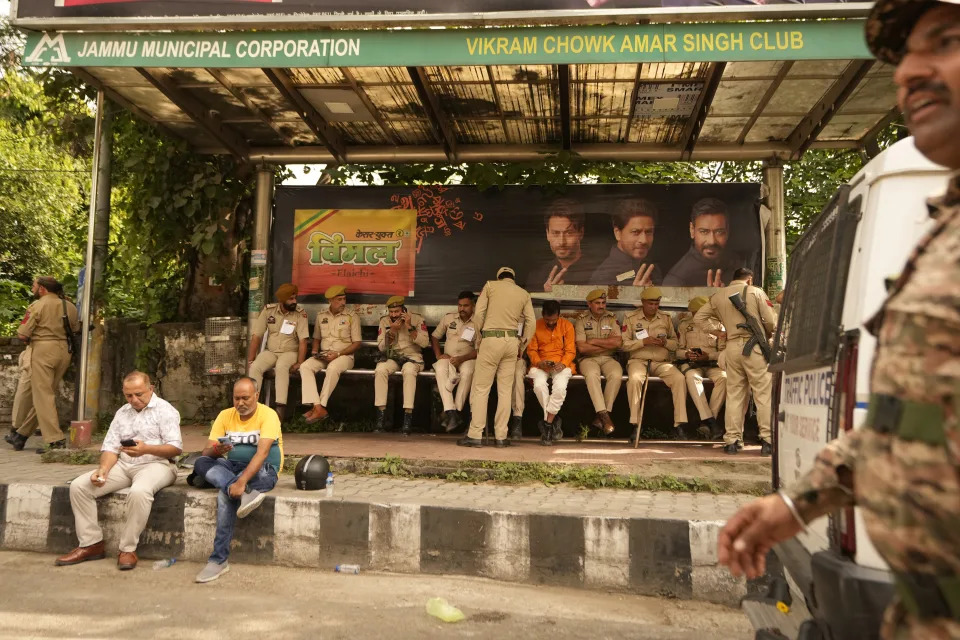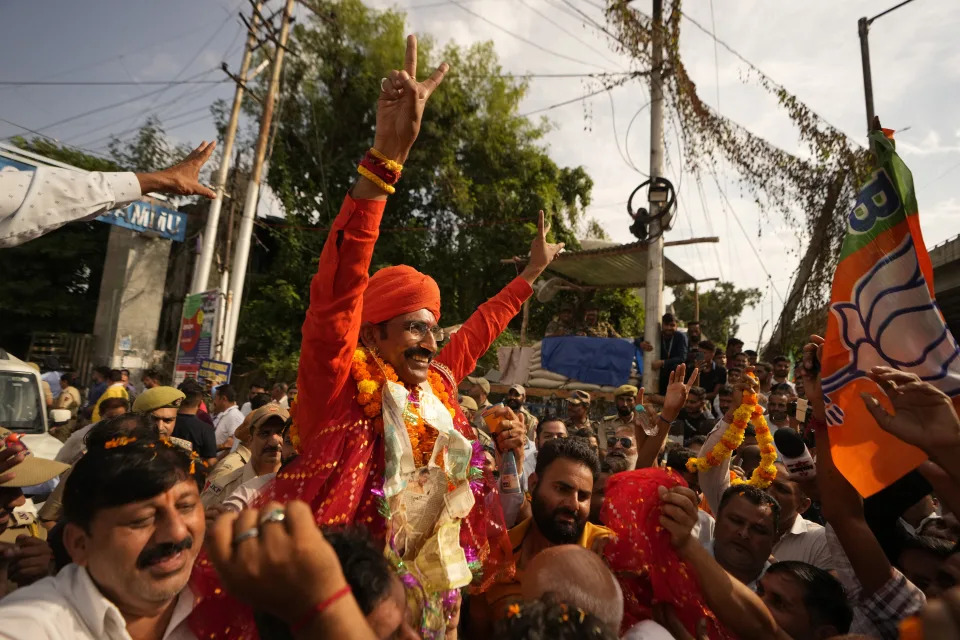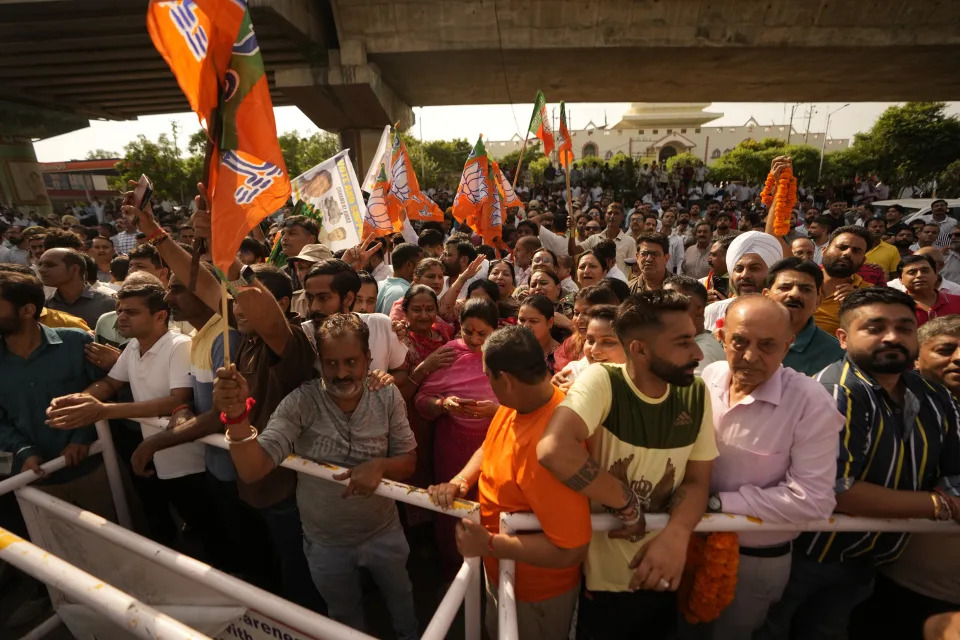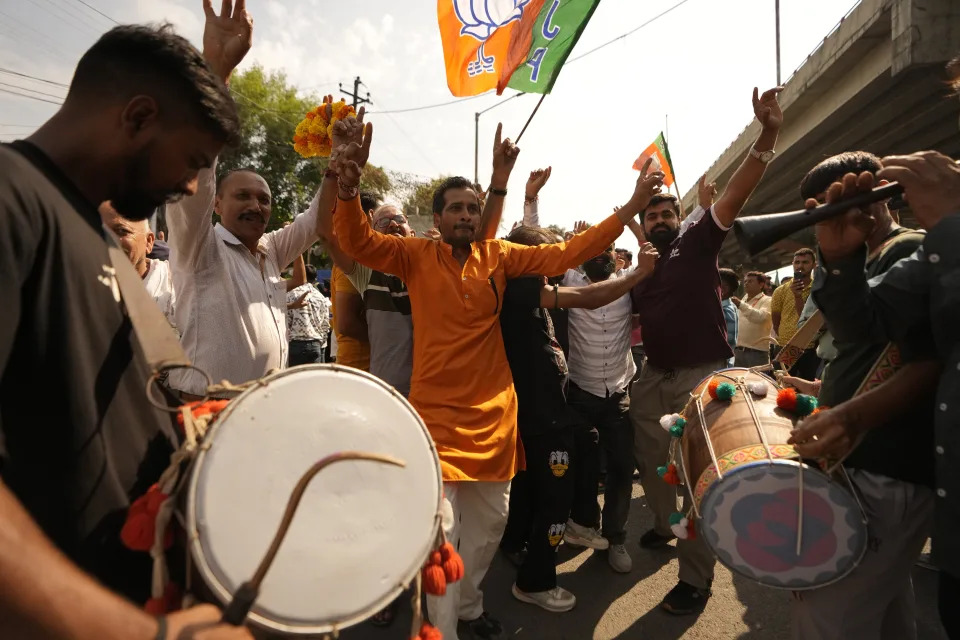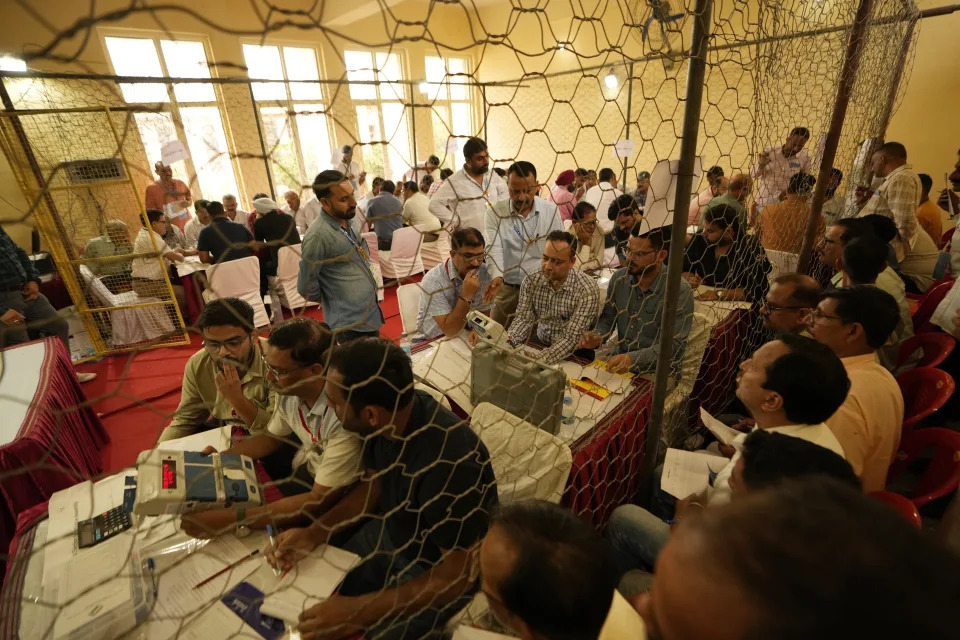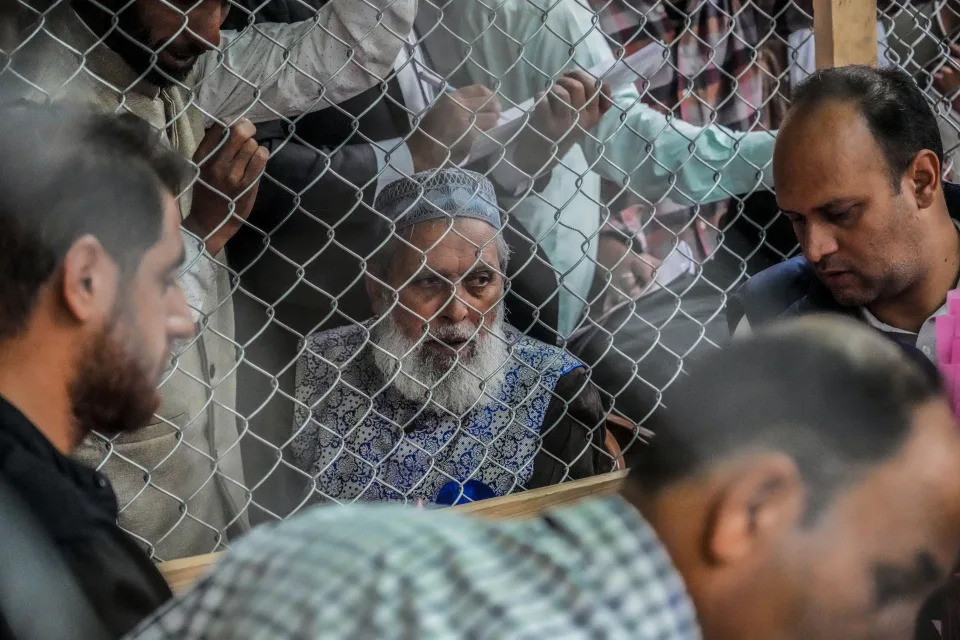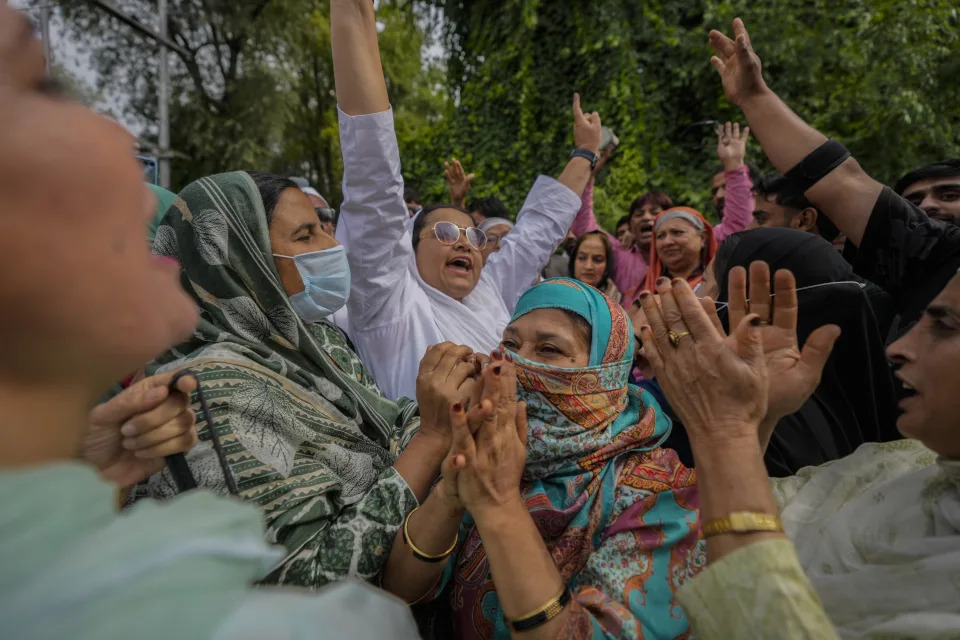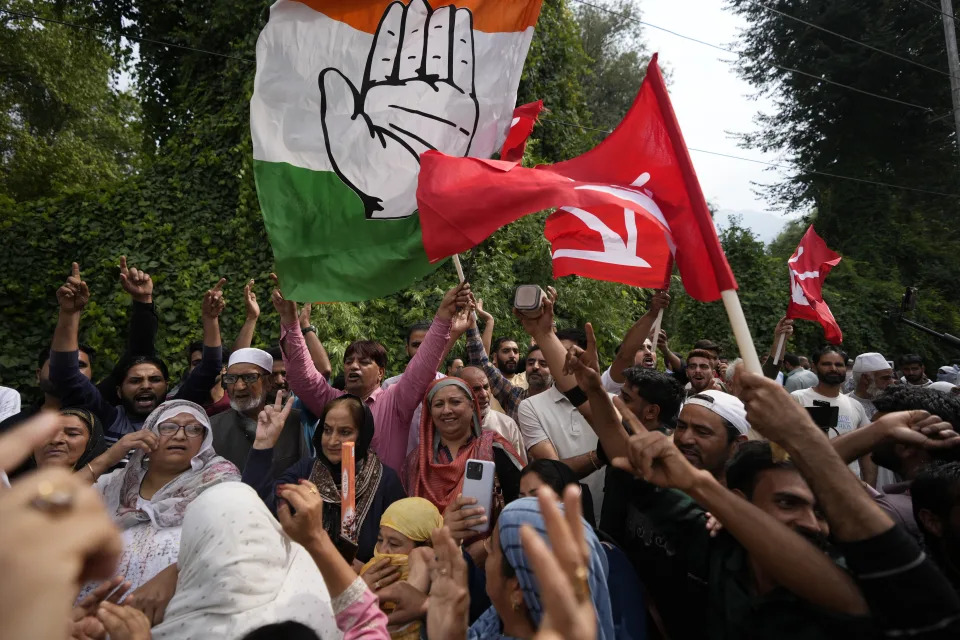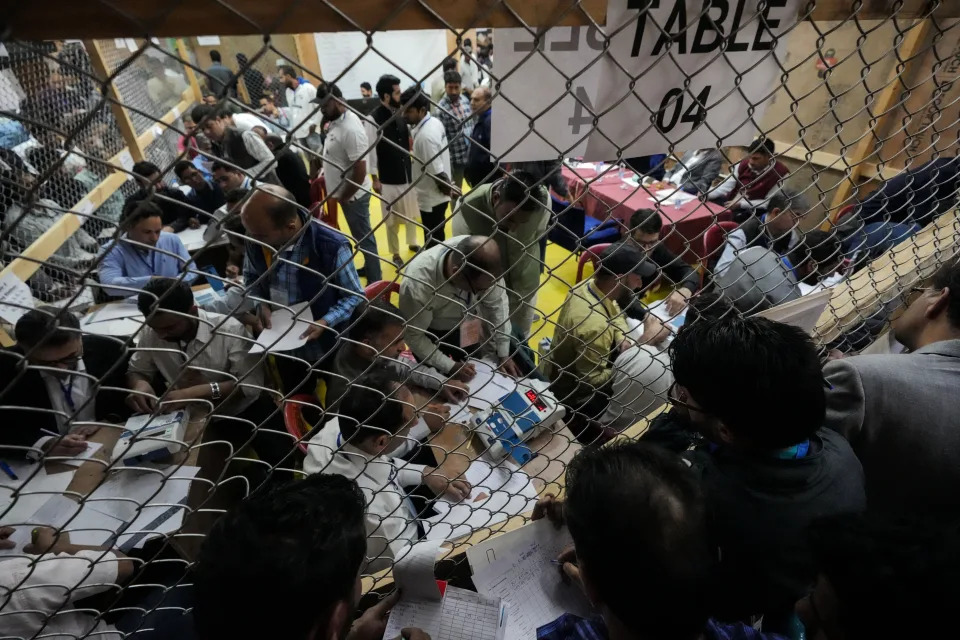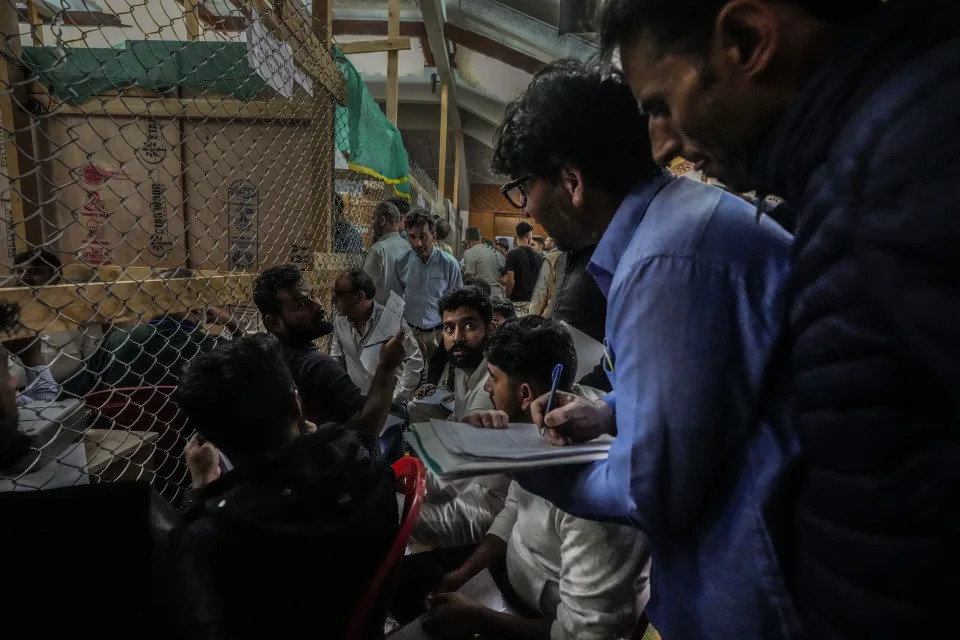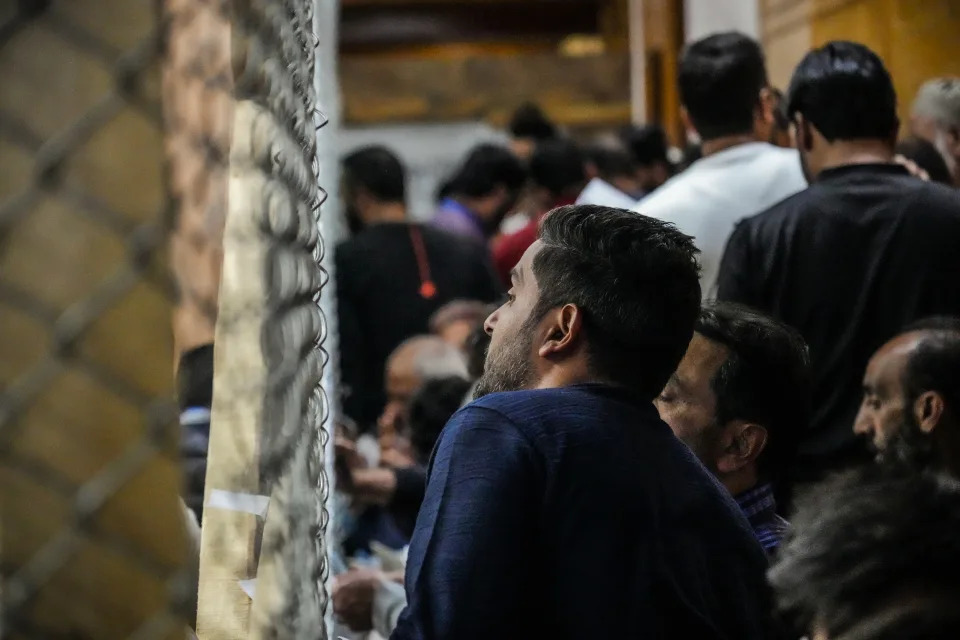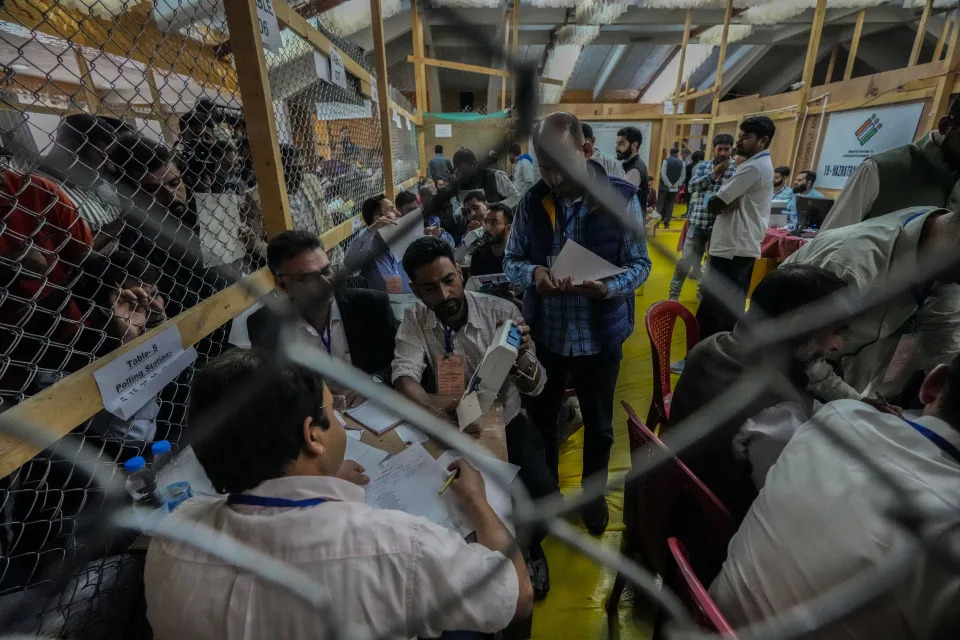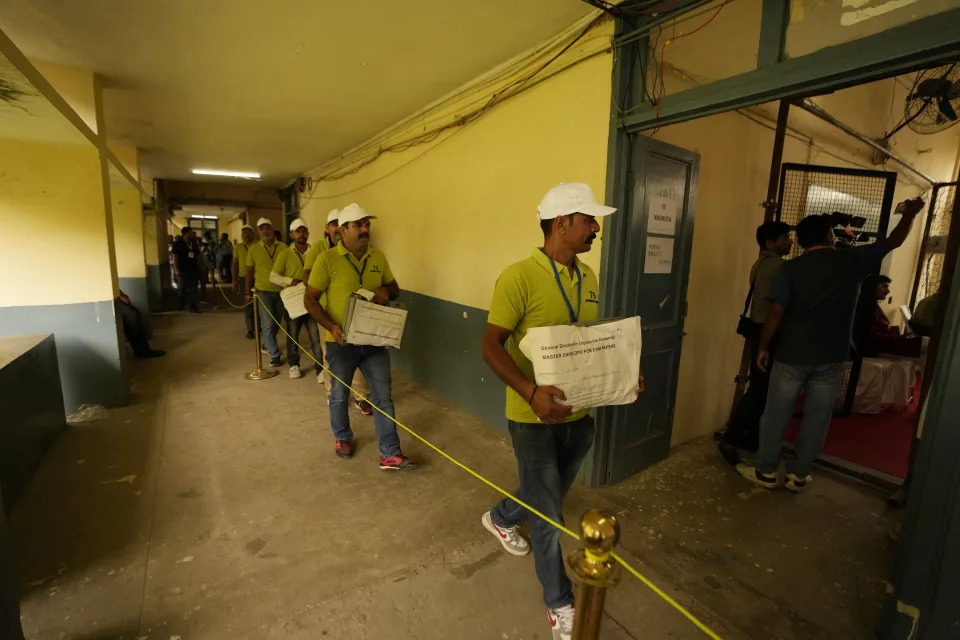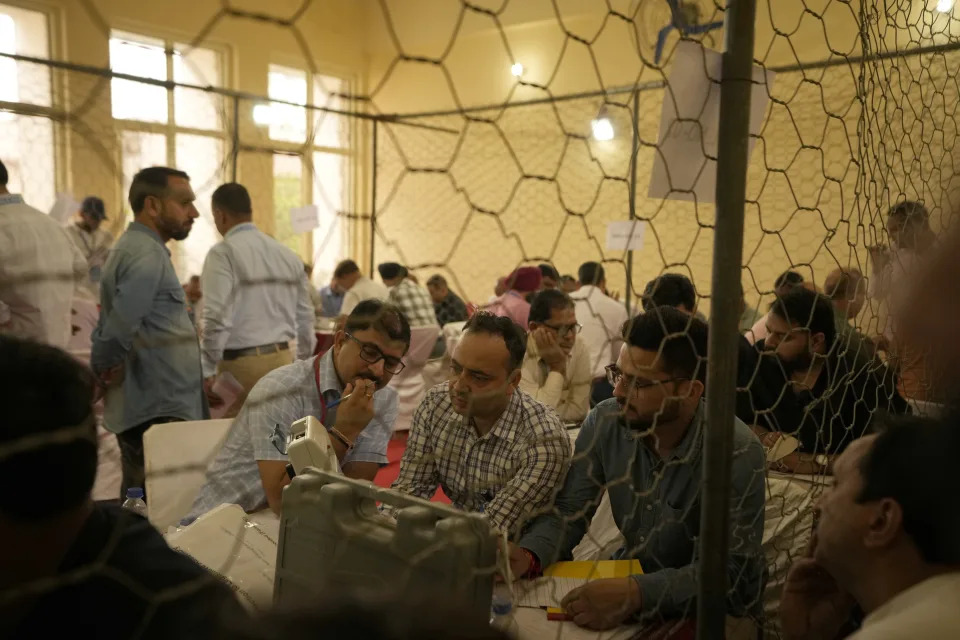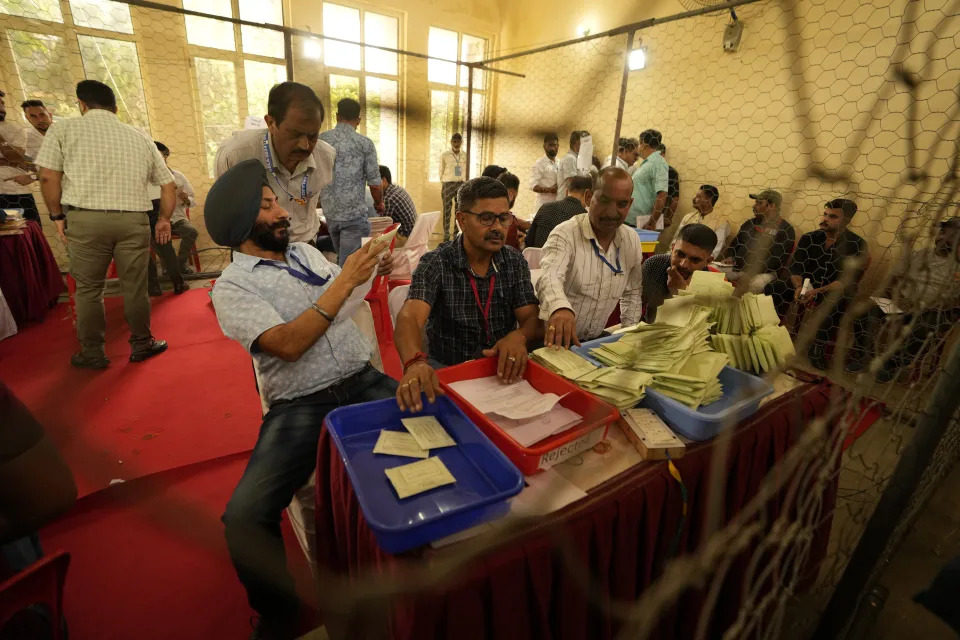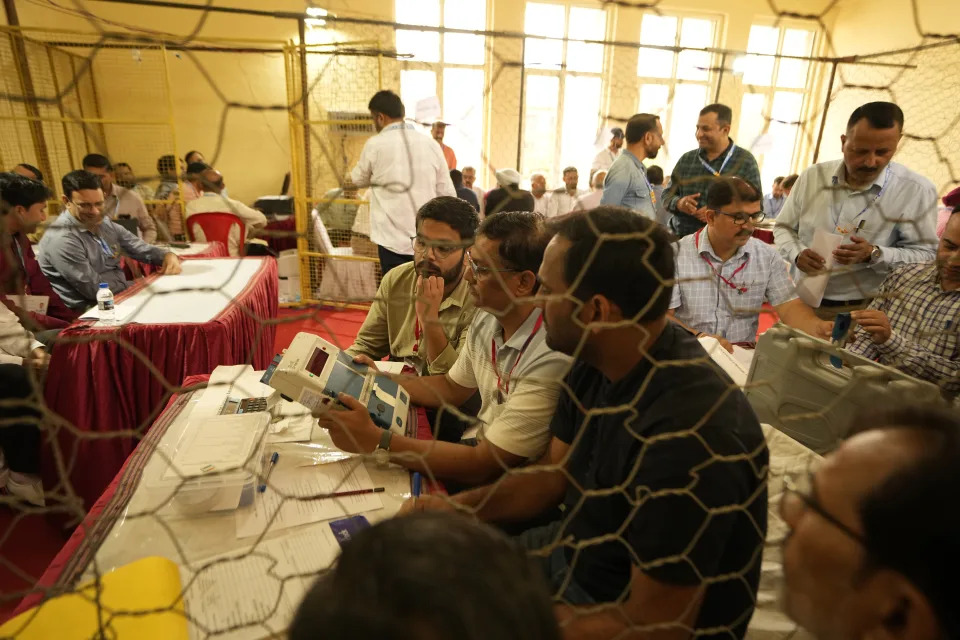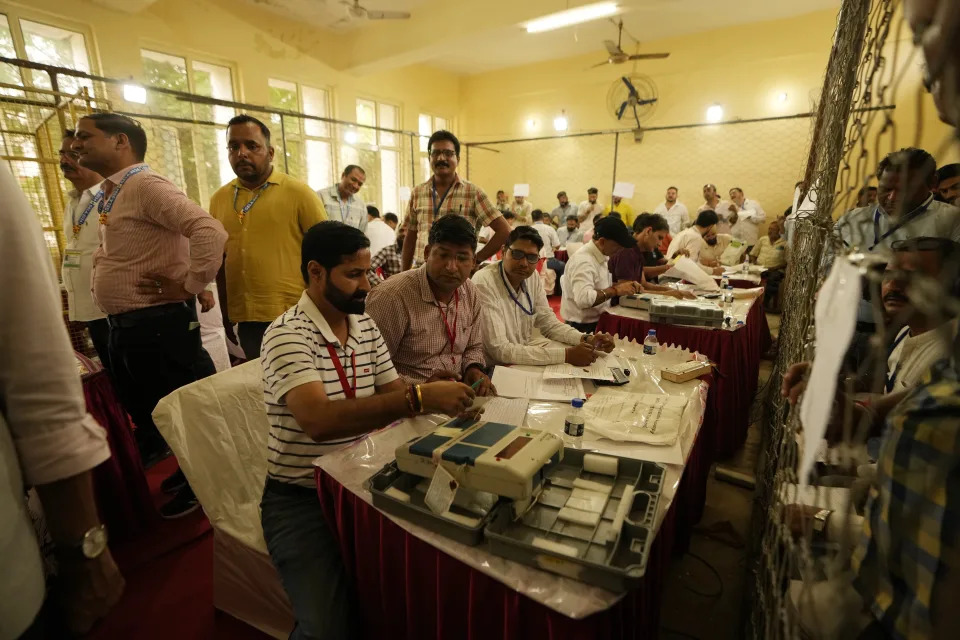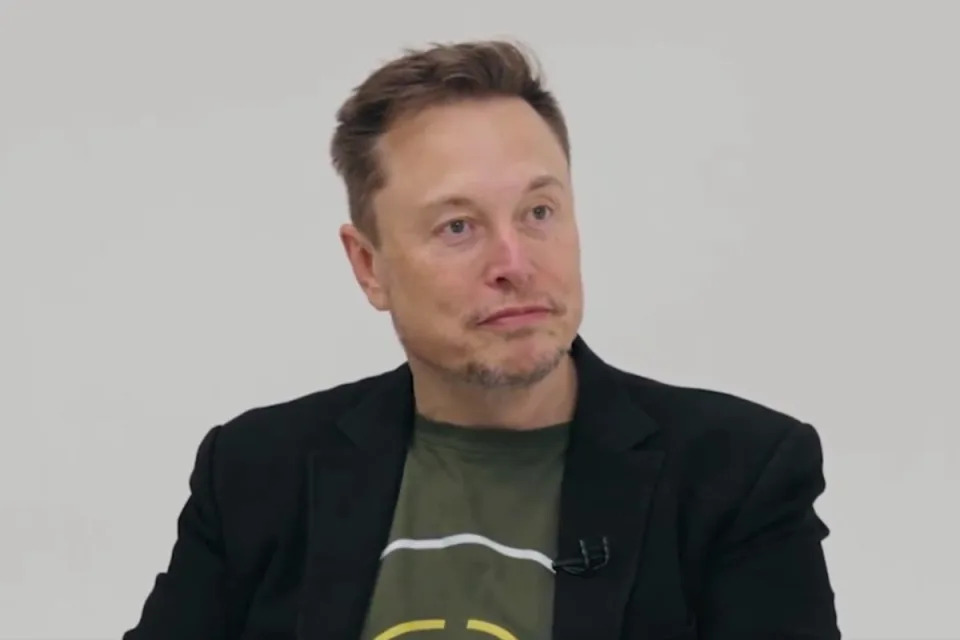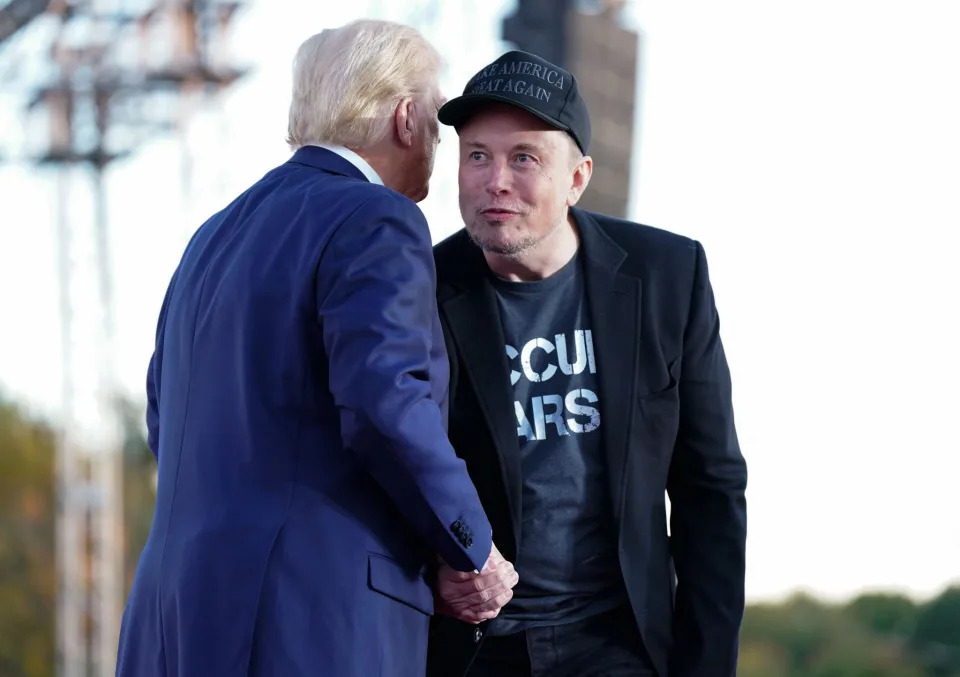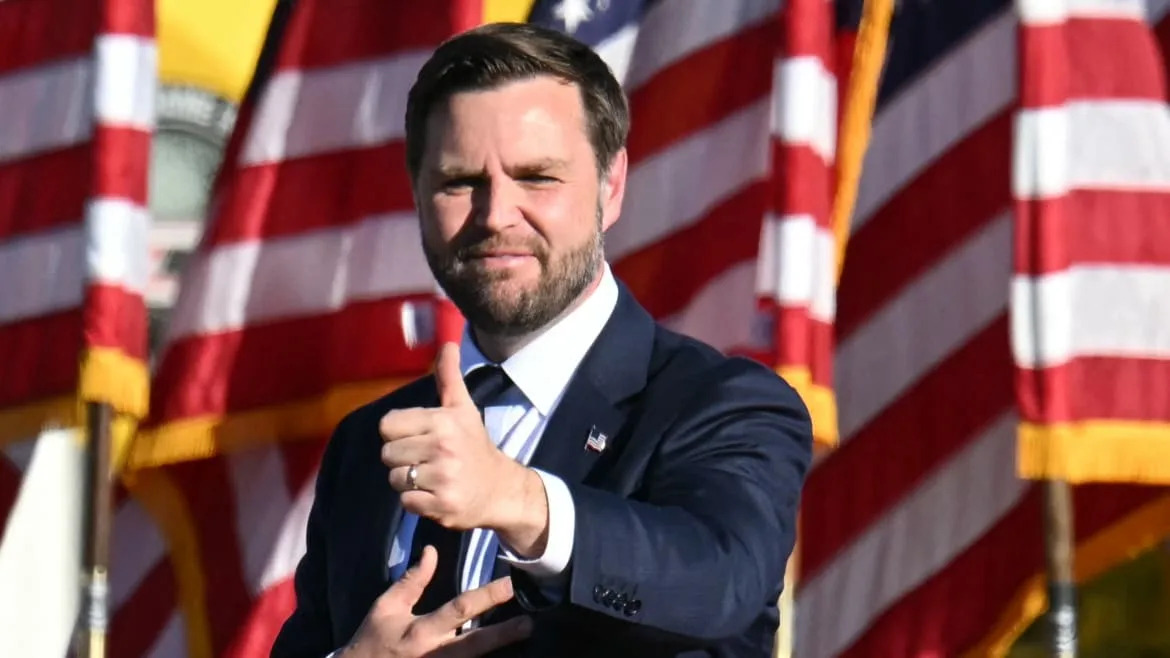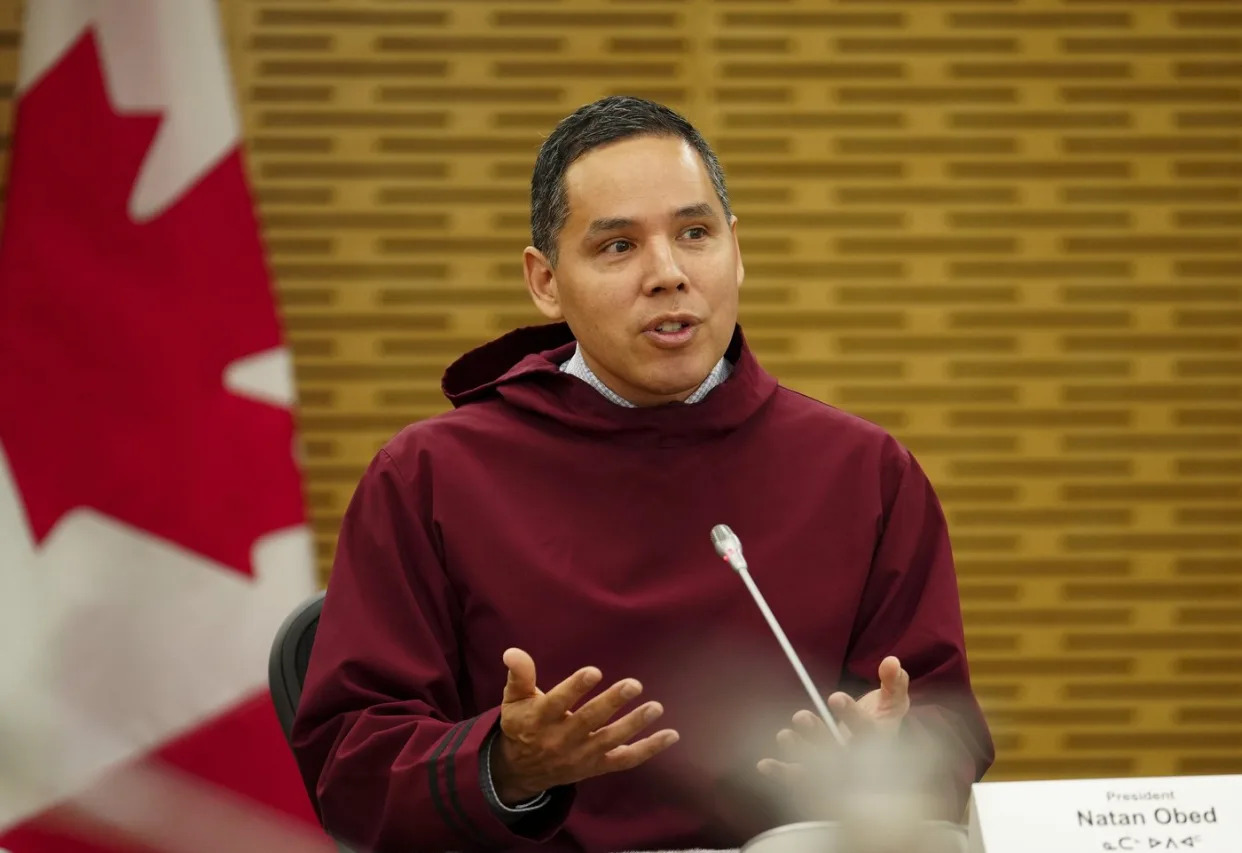AIJAZ HUSSAIN
Updated Tue, October 8, 2024
SRINAGAR, India (AP) — Kashmir’s biggest political party opposed to India's stripping of the region's semi-autonomy won the most seats in a local election, according to official data on Tuesday, following a vote seen as a referendum against the move by Prime Minister Narendra Modi’s government five years ago.
National Conference, or NC, won 42 seats, mainly from the Kashmir Valley, the heartland of the anti-India rebellion, according to the data. Modi’s Bharatiya Janata Party secured 29 seats, all from the Hindu-dominated areas of Jammu.
India’s main opposition Congress party, which fought the election in alliance with the NC, succeeded in six constituencies.
“People have supported us more than our expectations. Now our efforts will be to prove that we are worth these votes,” Omar Abdullah, the NC leader and the region’s former chief minister who won from two seats, told reporters in the main city of Srinagar.
His father and president of the party, Farooq Abdullah, said that the mandate was to run the region without “police raj (rule)” and try freeing people from jails. “Media will be free,” he said.
Late Tuesday, Modi in an address to his party workers in New Delhi said the peaceful election in the region was “the victory of the Indian Constitution and democracy.”
“The people of Jammu and Kashmir gave the mandate to the NC alliance, I congratulate them too. If we look at the vote share percentage, BJP has emerged as the biggest party” in the region, he said.
The vote will allow Kashmir to have its own truncated government and a regional legislature, called an assembly, rather than being directly under New Delhi’s rule.
However, there will be a limited transition of power from New Delhi to the assembly as Kashmir will remain a “union territory” — directly controlled by the federal government — with India’s Parliament as its main legislator. Kashmir’s statehood must be restored for the new government to have powers similar to other states of India. But it will not have the special powers it enjoyed before the 2019 changes.
“People have given their mandate,” Farooq Abdullah said. “They have proven that they don’t accept the decision that was taken on August 5,” he added referring to India’s move in Aug. 2019.
Hundreds of the NC workers gathered outside counting centers and at the homes of the winning candidates to celebrate the party’s victory. Waving the party flags, they danced and burst firecrackers while chanting pro-Kashmir and pro-party slogans.
It was the first such vote in a decade and the first since Modi’s Hindu nationalist government scrapped the Muslim-majority region’s long-held semi-autonomy in 2019.
The unprecedented move downgraded and divided the former state into two centrally governed union territories, Ladakh and Jammu-Kashmir. Both are ruled directly by New Delhi through its appointed administrators along with unelected bureaucrats and security setup. The move — which largely resonated in India and among Modi supporters — was mostly opposed in Kashmir as an assault on its identity and autonomy amid fears that it would pave the way for demographic changes in the region.
The region has since been on edge with civil liberties curbed and media gagged.
India and Pakistan each administer a part of Kashmir, but both claim the territory in its entirety. The nuclear-armed rivals have fought two of their three wars over the territory since they gained independence from British colonial rule in 1947.
Authorities tallied votes as thousands of additional police and paramilitary soldiers patrolled roads and guarded 28 counting centers. Nearly 8.9 million people were eligible to vote in the election, which began on Sept. 18 and concluded on Oct. 1. The overall turnout was 64% across the three phases, according to official data.
In the region’s legislature, five seats are appointed and 90 elected, so a party or coalition would need at least 48 of the 95 total seats to form a government. The alliance of the National Conference and the Congress have 48 seats combined.
Authorities have said the election will bring democracy to the region after decades of strife, but many locals viewed the vote as an opportunity not only to elect their own representatives but also to register their protest against the 2019 changes.
Except for the BJP, most parties who contested the election campaigned on promises to reverse the 2019 changes and address key issues like rising unemployment and inflation. The Congress party favored restoring the region’s statehood. The BJP has also stated that it will restore statehood, but has not told when it would do.
The BJP has vowed to block any move aimed at undoing most of the 2019 changes but promised to help in the region’s economic development.
Meanwhile, Modi’s BJP emerged victorious in the northern state of Haryana, bordering New Delhi, which it has ruled for 10 years, winning in 48 out of 90 constituencies, according to the Election Commission of India. The Congress party won 37 seats, the official data showed.
The voting trend in Haryana state is a surprise since most exit polls had predicted an easy victory for the Congress party. Indian exit polls have had a mixed record in the past in predicting election results.
The mandate is a simple majority that gives the BJP a record third five-year term in the state.
Modi in his address praised the people of Haryana for returning the BJP for a third time and said the state would witness faster development in the next five years.
“Haryana will develop, Jammu and Kashmir will develop, India will develop and we will do it,” he added.
Kashmir's last assembly election was held in 2014, after which the BJP for the first time ruled in a coalition with the local Peoples Democratic Party. But the government collapsed in 2018 after the BJP withdrew from the coalition.
Polls in the past have been marked with violence, boycotts and vote-rigging, even though India called them a victory over separatism.
Militants in the Indian-controlled portion of Kashmir have been fighting New Delhi’s rule since 1989. Many Muslim Kashmiris support the rebels’ goal of uniting the territory, either under Pakistani rule or as an independent country.
India insists the Kashmir militancy is Pakistan-sponsored terrorism. Pakistan denies the charge, and many Kashmiris consider it a legitimate freedom struggle. Tens of thousands of civilians, rebels and government forces have been killed in the conflict.
___
Associated Press writer Ashok Sharma in New Delhi contributed to this report.
___
Follow AP’s Asia-Pacific coverage at https://apnews.com/hub/asia-pacific
View comments (76)
Indian Kashmir elects first regional government in a decade
AFP
Tue, October 8, 2024 a
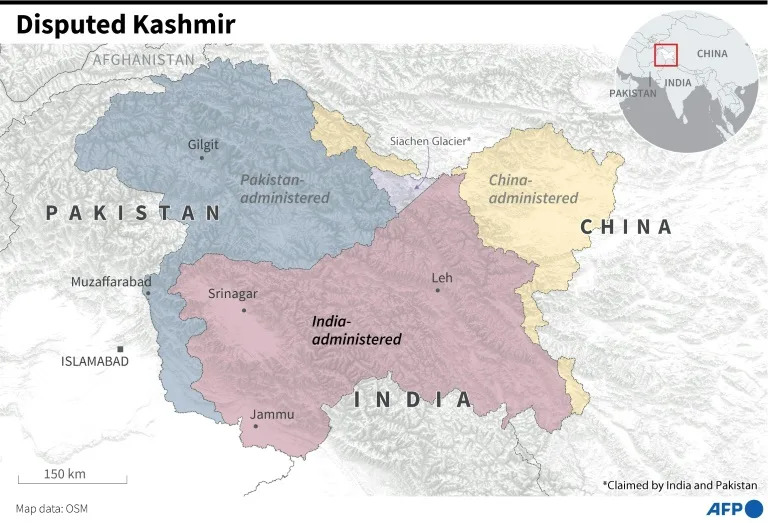
Map showing the parts of the Kashmir region held by India, Pakistan and China. (Nicholas SHEARMAN) (Nicholas SHEARMAN/AFP/AFP)
Indian-administered Kashmir elected Tuesday its first government since the restive Himalayan territory was brought under New Delhi's direct control, as voters backed opposition parties to lead its regional assembly.
Hindu nationalist Prime Minister Narendra Modi's government cancelled Kashmir's partial autonomy to control its affairs in 2019, a sudden decision accompanied by mass arrests and a months-long communications blackout.
Since then, the Muslim-majority territory of some 12 million people -- divided between India and Pakistan and claimed by both in full -- has not had an elected local government.
Instead, it has been ruled by a governor appointed by New Delhi.
While voters took part in national elections in June when Modi won a third term in power, these were the first local elections since 2014.
As results were announced, with an alliance of the opposition National Conference (NC) and Congress parties tipped to form a government, supporters celebrated.
By mid-afternoon, Election Commission figures showed NC and Congress had won 47 of 90 seats in the assembly, an unassailable lead over Modi's Bharatiya Janata Party (BJP), with 27.
Some called the vote a de facto referendum on the federal government's decision to repeal the territory's special status.
"The people have given their judgement against what New Delhi did," social activist Iqbal Ahmad Bhat said.
Half a million Indian troops are deployed in the far northern region, battling a 35-year insurgency in which tens of thousands of civilians, soldiers and rebels have been killed, including dozens this year.
- 'Political rights' -
"We are happy with the election results, and hope that the political rights will be restored," said Jahangir Ahmad, among the cheering crowds outside the home of the territory's expected new chief minister, NC leader Omar Abdullah.
Farooq Abdullah, his father and NC president, told reporters that the results were a "verdict" against Modi's government.
Critics however say the assembly will only have nominal powers over education and culture.
New Delhi will also have the power to override legislation, and will continue to appoint the governor.
Modi's BJP says the changes to the territory's governance have delivered a new era of peace to Kashmir and rapid economic growth -- claims other parties reject.
The BJP won seats in the southern Hindu-majority Jammu region, and fought only from about a third of the seats in the Kashmir valley.
Meanwhile, results from elections in Haryana -- a state just north of New Delhi -- were also released on Tuesday.
In those polls, Modi's BJP was leading the opposition Congress.
Among the newly-elected state legislators was the recently retired star wrestler Vinesh Phogat, standing for Congress.
The 30-year-old World bronze medallist switched to politics after being disqualified from the women's 50kg competition at the Paris Olympics for being overweight ahead of the final.
Last year she took part in protests against the then-national wrestling federation chief who faced accusations of sexual harassment.
bur-abh/pjm/dhc
Kashmir and Haryana prove India exit polls wrong
Geeta Pandey - BBC News, Delhi
Tue, October 8, 2024
The northern Indian state of Haryana and Indian-administered Kashmir sprang surprises on Tuesday as votes were counted in assembly elections there.
Most exit polls had predicted a hung assembly in Kashmir but an alliance of the main opposition Congress and the National Conference Party (NCP) are on course for a landslide in the 90-member house and poised to form a government.
In Haryana, which also has 90 seats, predictions of a Congress landslide were upended by Prime Minister Narendra Modi's Bharatiya Janata Party (BJP) which has proved the pollsters wrong.
The BJP-led government appears on course to return for a rare third consecutive term in Haryana.
The polls in Kashmir are significant as these are first assembly elections there in a decade – and also the first since the federal government revoked the region's autonomy and changed the former state into a federally- governed territory in 2019.
Unlike Kashmir - which India and its neighbour Pakistan have fought wars over – Haryana does not often command global headlines.
But the tiny state grabs much attention in India as it is next to the capital, Delhi. Along with Punjab, it is called the bread basket of India for its large wheat and paddy farms, and the city of Gurugram is home to offices of some of the biggest global brands such as Google, Dell and Samsung.
The results are being watched keenly in India as these are the first state assembly polls since the summer parliamentary election. Analysts say Tuesday’s results will set the tone as the country heads into more regional elections, including in the state of Maharashtra and Delhi, over the next few months.

Modi's BJP is set to return for a third term in power in Haryana [PTI]
So what happened in Haryana?
Perhaps the best description of what transpired in the state has come from political scientist Sandeep Shastri.
“The Congress has snatched defeat from the jaws of victory,” he told the BBC.
For weeks, political circles had been abuzz that the BJP was facing a huge wave of anti-incumbency and analysts were confidently saying that the party’s government was on its way out.
After most of the post-election exit polls predicted a Congress landslide, many said it was an election for the party to lose.
Shastri blames the Congress defeat on overconfidence and infighting within the party.
“They were confident they would win and became complacent. BJP, on the other hand, worked on issues quietly on the ground and successfully fought anti-incumbency to return to power.”
Both parties, he said, tried to form social coalitions by bringing together different caste groups – the results show the majority chose to support the BJP.
Shastri says differences between two top Congress leaders - Bhupinder Singh Hooda and Kumari Selja, who were contenders for the chief minister’s post - did not go down well with the voters.
Tuesday’s count, however, has been mired in controversy with the Congress accusing the Election Commission (EC) of delaying updating numbers on their website.
After party leader Jairam Ramesh submitted a complaint letter to the Election Commission, Selja said her party may still come out on top.
“I am telling you… there is something going on. If all goes well, Congress will form the government in Haryana,” she said.
But with numbers not on their side, that will likely remain a dream.
The EC has denied the allegations.

Analysts say the results will set the tone as the country heads into more regional elections [Reuters]
No-one thought Kashmir was going to be BJP’s
In the Muslim-majority Kashmir valley, the Hindu nationalist BJP has little support, but it enjoys tremendous goodwill in the Hindu-dominated Jammu region. And the results reflect that divide. But the Congress-NC alliance has enough seats and is headed to form a government in the state.
The Modi government’s 2019 decision to scrap Article 370 of the constitution, which granted special status to Kashmir, and carve the state into two sent shockwaves around the valley, which elects 47 assembly seats.
At his campaign rallies, Modi had promised to restore the region's “statehood”. But as the results show, that failed to placate angry voters.
The region saw a surprisingly high turnout – but as political analyst Sheikh Showkat Hussain says, they were voting against the BJP and the revocation of the region’s special status.
Article 370: What happened with Kashmir and why it matters
Modi's BJP ahead in Haryana election but trails in Kashmir
“The BJP made this election into a sort of referendum on its decision [to revoke Article 370]. However, people voted in favour of the stand taken by the regional parties,” he said.
Noor Mohammad Baba, another political analyst in Kashmir, says the results reveal that the BJP’s "policies weren’t popular” in the region.
“The result is a message to Delhi that they need to mend their policies towards Jammu and Kashmir,” he added.
One surprising outcome of the election has been the poor showing by the People’s Democratic Party (PDP), led by former Kashmir chief minister Mehbooba Mufti.
Mufti, who earlier ruled in coalition with the BJP, has managed to win only three seats.
Responding to a query about her party’s poor performance, she said it was the "people's choice".
"Winning or losing is a part of politics. People feel that Congress and National Conference will give them a stable government and keep the BJP at bay. We respect their verdict," she added.
Additional reporting by Auqib Javeed in Srinagar
